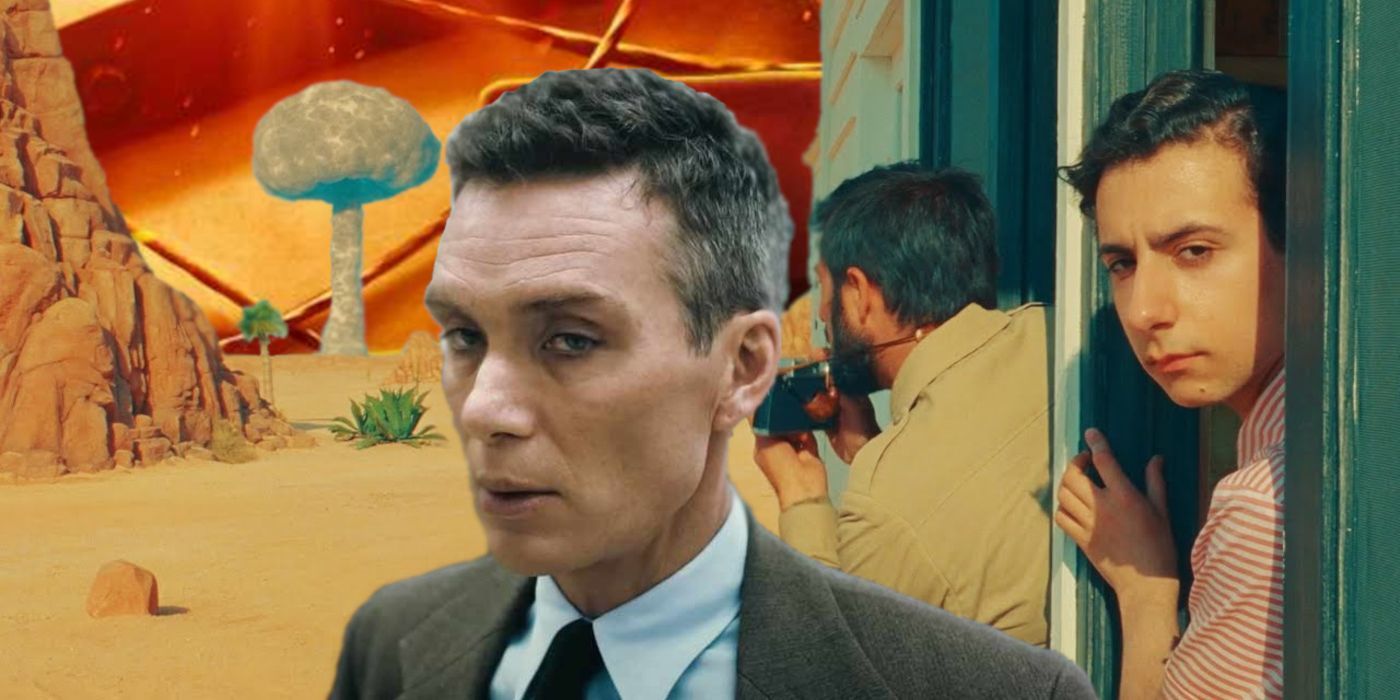Christopher Nolan’s Oppenheimer is a visual and audio masterpiece that follows the actual (to an extent) twists and turns of J. Robert Oppenheimer’s (Cillian Murphy) tragic life as he headed the Manhattan Project, created the atom bomb and battled against a bitter Lewis Strauss (Robert Downey Jr.). The film not only takes moviegoers on a three-hour-long political thrill ride that any fan of historical non-fiction will appreciate, but it’s also an ode to the times. For instance, aside from conveying the details of Oppenheimer’s personal history, it also reflects the ideas, concerns and sentimentality of those who lived before and after World War II.Incidentally, Wes Anderson’s new film, Asteroid City, gives the era a similar treatment, despite taking a more humorous undertone. As a result, both films should be watched in tandem. Doing so gives viewers a sense of the zeitgeist of the ’40s to ’60s and illustrates the differences between the larger-than-life figures that dominated the period and everyday regular people. Granted, Oppenheimer’s testimony of events might be more truthful than Asteroid City’s, mainly because the latter isn’t a biopic and makes a point to let its audience know they’ve set the film to mimic the 19th-century novel Vanity Fair. As a result, the picture is all a fictional tale presented through actors on a stage hosted by the unnamed narrator (Bryan Cranston) of an anthology television series that’s not dissimilar to the shows of the 1950s or ’60s. Additionally, it enters the absurd by including aliens, so Asteroid City’s illustration of the era is far from accurate. Nonetheless, both paint an exciting mosaic of the people living through the times. The only difference is that Oppenheimer goes about it as if it were a Greek tragedy: the characters are herculean figures due to their clout and prestige. Because of this, Oppenheimer meets all the criteria for Aristotle’s definition of a tragic character.RELATED: Why Asteroid City Is Wes Anderson’s Best Film
Christopher Nolan’s Oppenheimer is a visual and audio masterpiece that follows the actual (to an extent) twists and turns of J. Robert Oppenheimer’s (Cillian Murphy) tragic life as he headed the Manhattan Project, created the atom bomb and battled against a bitter Lewis Strauss (Robert Downey Jr.). The film not only takes moviegoers on a three-hour-long political thrill ride that any fan of historical non-fiction will appreciate, but it’s also an ode to the times. For instance, aside from conveying the details of Oppenheimer’s personal history, it also reflects the ideas, concerns and sentimentality of those who lived before and after World War II.
Incidentally, Wes Anderson’s new film, Asteroid City, gives the era a similar treatment, despite taking a more humorous undertone. As a result, both films should be watched in tandem. Doing so gives viewers a sense of the zeitgeist of the ’40s to ’60s and illustrates the differences between the larger-than-life figures that dominated the period and everyday regular people.
Granted, Oppenheimer‘s testimony of events might be more truthful than Asteroid City‘s, mainly because the latter isn’t a biopic and makes a point to let its audience know they’ve set the film to mimic the 19th-century novel Vanity Fair. As a result, the picture is all a fictional tale presented through actors on a stage hosted by the unnamed narrator (Bryan Cranston) of an anthology television series that’s not dissimilar to the shows of the 1950s or ’60s. Additionally, it enters the absurd by including aliens, so Asteroid City‘s illustration of the era is far from accurate. Nonetheless, both paint an exciting mosaic of the people living through the times. The only difference is that Oppenheimer goes about it as if it were a Greek tragedy: the characters are herculean figures due to their clout and prestige. Because of this, Oppenheimer meets all the criteria for Aristotle’s definition of a tragic character.
#Oppenheimer #Asteroid #City #Perfect #Double #Feature
Note:- (Not all news on the site expresses the point of view of the site, but we transmit this news automatically and translate it through programmatic technology on the site and not from a human editor. The content is auto-generated from a syndicated feed.))



